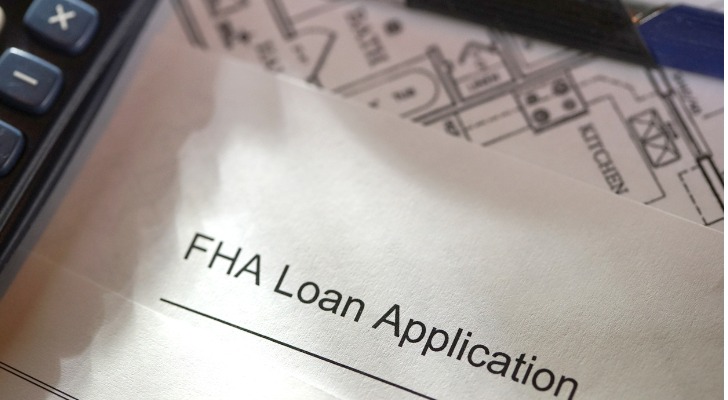FHA mortgages and mortgage insurance are government programs intended to help first-time homebuyers and other in-need borrowers get loans to purchase homes. If you have a low credit score and can’t make a large down payment, you might be considering an FHA-backed loan—and with an FHA loan comes FHA mortgage insurance. It’s important to understand how both the loans and the insurance work, so this page walks you through exactly what you need to know.
Buying a home is an important financial decision, so consider consulting a financial advisor to help you make a wise choice.
FHA Loan Basics
FHA stands for the Federal Housing Administration, a part of the U.S. Department of Housing and Urban Development (HUD). According to HUD’s website, the FHA insures mortgage loans made by FHA-approved lenders.
The FHA doesn’t actually lend the money to borrowers. Instead, they regulate and insure the loan from a private lender, such as a bank or credit union. The FHA’s involvement allows the lender to offer you a better deal. The program is intended to help borrowers with lower credit scores or down payments as low as 3.5% qualify for a mortgage.
What Is FHA Mortgage Insurance?
When you have a low credit score or a small down payment, lenders see you as a riskier borrower. Mortgage insurance protects the lender if you fall behind on your payments or stop making them altogether. If you default on mortgage covered by FHA mortgage insurance, the FHA will pay a claim for the balance of the principal. This insurance makes the loans less risky for the lender, allowing them to offer mortgages to people who might otherwise not qualify.
If you have FHA mortgage insurance, that doesn’t mean that there are no consequences for you if you stop making payments or miss a payment. You could still lose your home and see a hit to your credit score if you fall behind or default on your mortgage. Mortgage insurance is there to protect the bank, credit union or other entity lending to you — not you.
Mortgage insurance isn’t necessary for all mortgages, but it’s almost always required for FHA loans. It’s also common for borrowers who can’t make a down payment of at least 20% on their home, even if their mortgage isn’t backed by the FHA.
How Does FHA Mortgage Insurance Work?

FHA mortgage insurance works like this: You will need to get insurance at the same time you take out the loan. Your credit score doesn’t impact the cost of the insurance, but you’ll likely see a small price increase if your down payment is less than 5%.
The total cost of FHA mortgage insurance is two-part: an upfront cost and a monthly cost. The upfront cost is usually paid with the closing costs of your home, but you can roll the fee into your mortgage if you can’t pay it upfront. This will increase your total loan amount. The upfront mortgage insurance premium is 1.75% of your base loan amount — so if your total loan is $200,000, your upfront mortgage insurance payment would be $3,500.
The monthly cost of mortgage insurance premiums is a bit more complex. It is determined by the size of your down payment, the term of your mortgage and your loan-to-value ratio. You’ll make all of your FHA mortgage insurance payments directly to the FHA.
FHA Mortgage Insurance Example
Let’s say you have a low credit score of 580 and you’ve saved $250,000. You’re searching for your first home. You find a $400,000 house that you really want to buy—but with a 5% down payment and a lackluster credit score, you’re not qualifying for any loans.
First, you check the FHA mortgage limits for your county via a simple search on their website. You find that a $400,000 house is in fact within the cost limit in your county. You can then use the HUD Lender List Search to find an FHA-approved lender in your area.
Now, while the FHA-back aspect of an FHA mortgage will help you qualify for a loan even with a lower credit score and smaller down payment, the lender will still look at things like your work history, your payment history and your debt-to-income ratio to determine whether or not to give you the loan.
Once the lender approves your loan, you’ll go through the normal steps of buying the house—and you’ll need to get FHA mortgage insurance. You’ll pay your upfront premium of $7,000 at the same time you pay closing costs on your home, and then you’ll make your monthly payments over the term of the loan.
In a positive scenario, you successfully pay off your mortgage and own your home outright. You no longer owe mortgage insurance premiums and you get to enjoy life as a first-time homeowner! On the negative side, let’s say things take a bad turn and you’re no longer able to make your mortgage payments. Your house will get taken, your credit score will get dinged and the FHA will pay the lender who gave you the mortgage the principal balance still outstanding.
The Bottom Line

While FHA mortgage insurance doesn’t protect you from losing your home, it protects lenders and allows them to offer you a mortgage you might not otherwise qualify for. This allows people who might have lower credit scores or smaller down payments to become homeowners. Make sure you know that you can afford both your mortgage payments and mortgage insurance payments over the life of the loan before you take out an FHA-backed mortgage.
Mortgage Tips
- If you’re struggling to save up a down payment or with other financial plans for the future, you might find it helpful to talk to a financial advisor. Finding a qualified financial advisor doesn’t have to be hard. SmartAsset’s free tool matches you with up to three financial advisors who serve your area, and you can interview your advisor matches at no cost to decide which one is right for you. If you’re ready to find an advisor who can help you achieve your financial goals, get started now.
- Want to know what your mortgage payment might look like and the difference a higher down payment might make? Use SmartAsset’s mortgage calculator to estimate your monthly payments with taxes, fees and insurance.
Photo credit: ©iStock.com/RonFullHD, ©iStock.com/svetikd, ©iStock.com/Kameleon007
